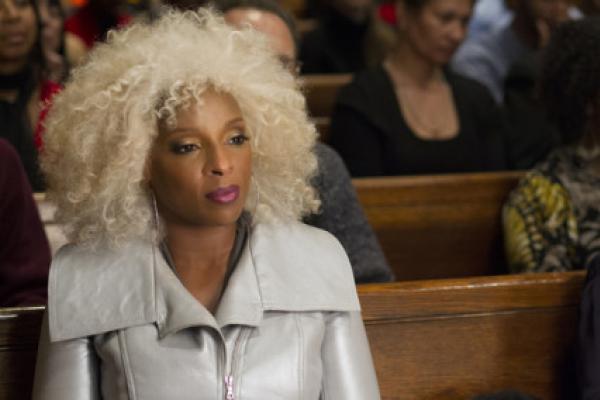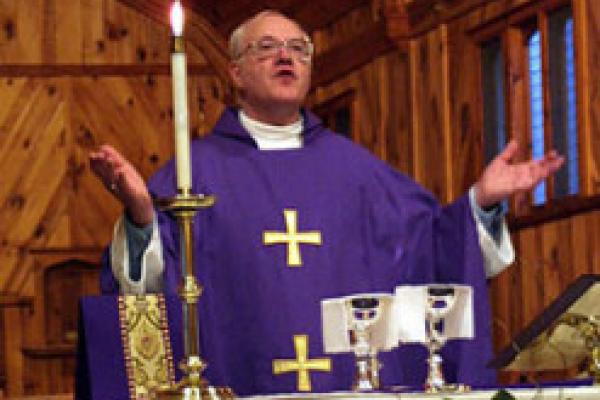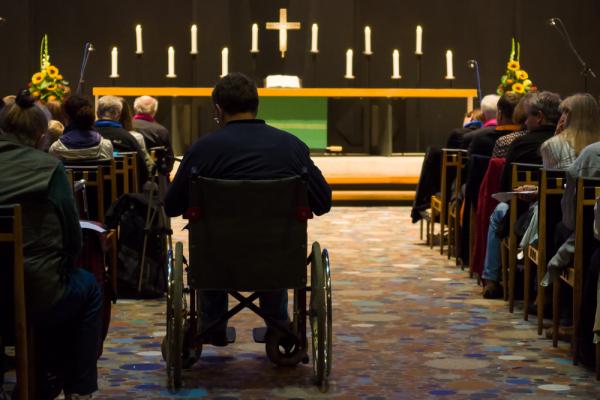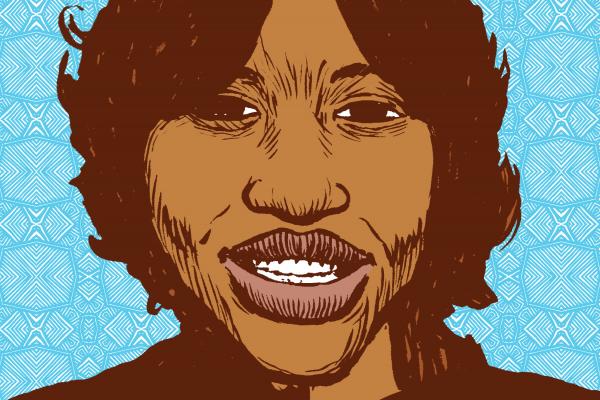In a tech newsletter I read, two colleagues addressed the end of the world of the personal computer that they spent three decades mastering.
There will be no more building PCs from scratch, no more tinkering with the innards, no more fine-tuning the operating system.
“The evolution of the PC industry over the last several years has not been good to the old-school PC professional, particularly for those whose careers have been heavily hardware-oriented,” said the writer.
Many clergy and lay leaders are in exactly this position.
In her book “The Funny Thing Is …,” Ellen DeGeneres describes being invited to God’s house for wine and cheese. When the Almighty walks into the room, Degeneres describes God this way:
“I would say she was about 47, 48 years old, a beautiful, beautiful black woman. And we just immediately hugged.”
When I think about the guardian angels who I’ve been told surround me like spiritual body guards, I picture the Angel In Charge as looking and sounding a lot like the Grammy-winning singer Mary J. Blige.
How appropriate, then, that Blige portrays a character in the upcoming holiday film, Black Nativity, (based in part on the Langston Hughes play) who appears to be an angelic being with a huge platinum-blonde Afro, dressed head-to-toe in silver-colored leather.
A former archbishop of Canterbury has warned that the Church of England faces extinction in less than 25 years unless it can attract more young people now.
Talking to 300 churchgoers in Shropshire, West England on the eve of a church agreement to start a campaign to evangelize England, Lord George Carey said: “We ought to be ashamed of ourselves. We are one generation away from extinction and if we do not invest in young people there is going to be no one in the future.”
Carey was Archbishop of Canterbury and leader of the world’s estimated 85 million Anglicans from 1991 until 2002 when he joined the House of Lords (Britain’s Upper Chamber of Parliament).
In November of 1963, C. S. “Jack” Lewis knew he was dying. The Irish-born literary scholar, children’s author, and Christian apologist had come out of a coma in July, only to be diagnosed with end-stage renal failure. He retired from his post at Cambridge University, choosing to die at home in the Kilns, where he lived with his brother, Major Warren (“Warnie”) Lewis.
On Friday, Nov. 22, he retired to his bedroom after lunch. At 4:30 p.m. GMT he took some tea. An hour and a half later, Warnie heard a crash and discovered Jack unconscious. Within three or four minutes, he was dead, exactly one week shy of his 65th birthday.
A few minutes later (11:39 a.m. CST), Air Force One touched down at Love Field in Dallas, Texas, as a motorcade prepared to take President John F. Kennedy and his wife Jacqueline, along with their entourage, to the Dallas Business and Trade Mart. But the motorcade never arrived at its destination.
After the president suffered mortal gunshot wounds to the head at 12:30 p.m., his limousine rerouted to Parkland Memorial Hospital where the 46-year-old president was dead upon arrival.
Churches are supposed to be communities that represent Christ’s infinite love — and many of them do — but certain groups of people seem to be continually ignored, alienated, undervalued, and simply lost within American churches. Leadership structures, social expectations, religious values, and traditions within faith communities have a tendency to favor some groups but not others, resulting in discrimination instead of equality, exclusion instead of acceptance, and prejudice instead of fairness.
In the early morning of Saturday, Nov. 2, Renisha McBride, 19-year-old black woman from Detroit, crashed her car in Dearborn, a predominantly white Detroit suburb. Lacking battery power for her cellphone, she approached a nearby home to ask for help. Theodore Paul Wafer, a white man, answered the door. He responded to her knock by shooting a firearm through a locked screen door, striking Renisha in the face and killing her. Police initially said that the white man mistook her for an intruder and shot her in self-defense, even though Renisha was unarmed and there is no evidence of her attempting to enter the house uninvited. Two weeks passed before the Wafer was charged with second-degree murder and arrested. Wafer maintains that he acted in self-defense. If the recent George Zimmerman acquittal is any indication, it is entirely possible that justice will not come to pass.
A black woman is dead because a white man decided that she should die. A black woman is dead and there is no guarantee, that in 21st-century America, justice will be done.
This is America and this is not new.
I’d never heard of Renisha McBride until her death became a national news story a little more than two weeks ago. But in a way, I’ve known Renisha my whole life. Renisha’s story echoes the stories of black women across the arc of American history.





